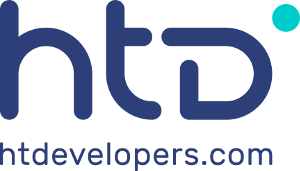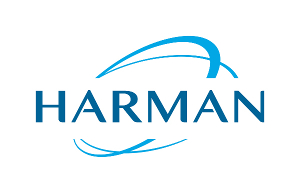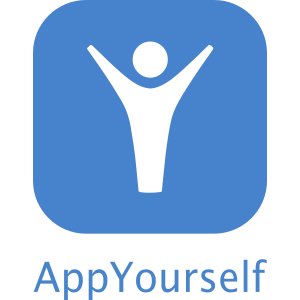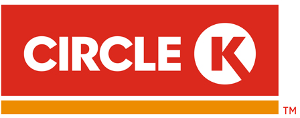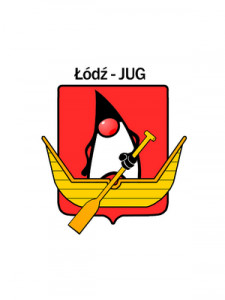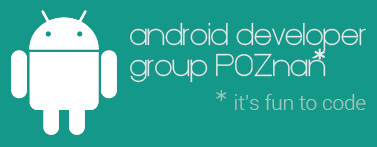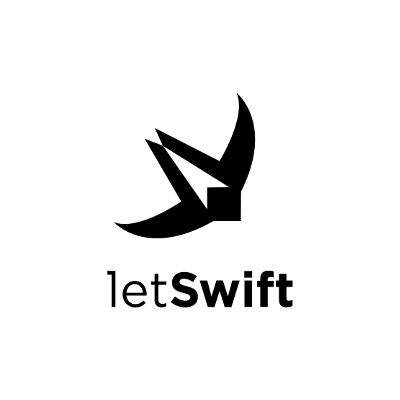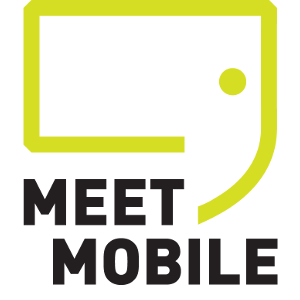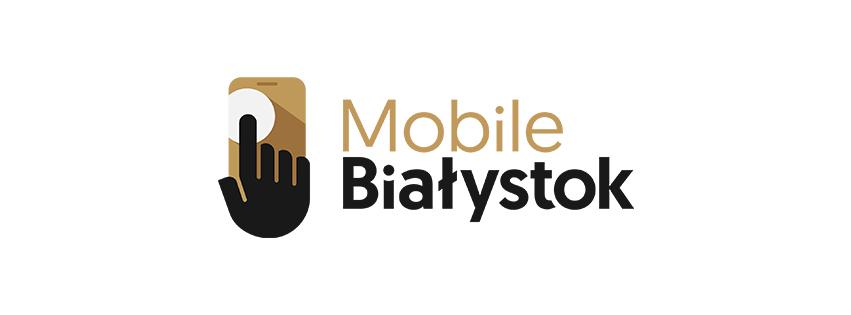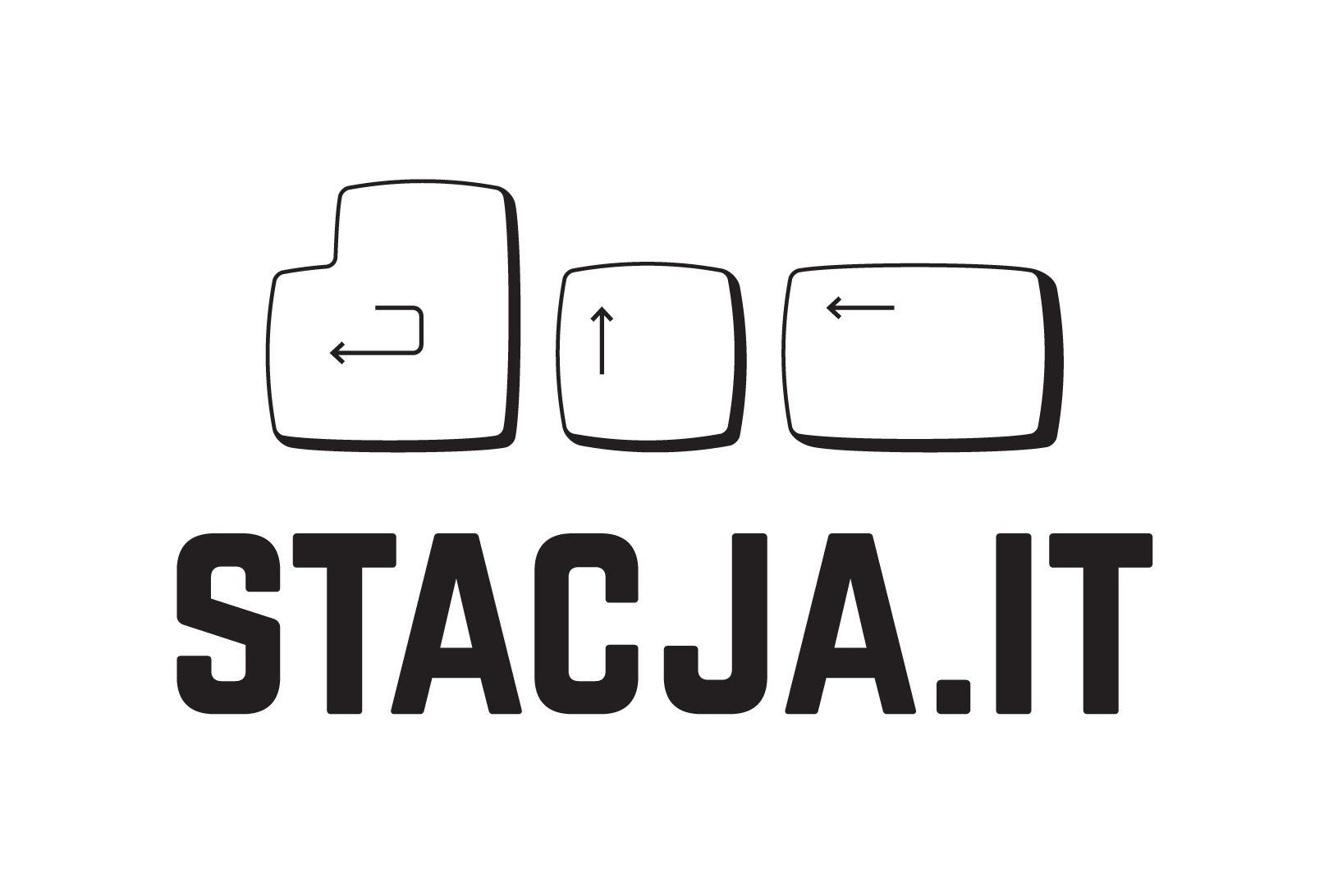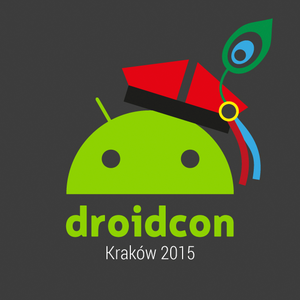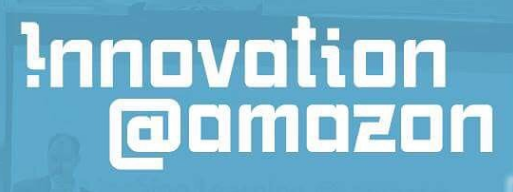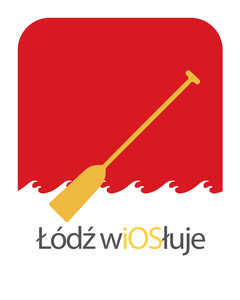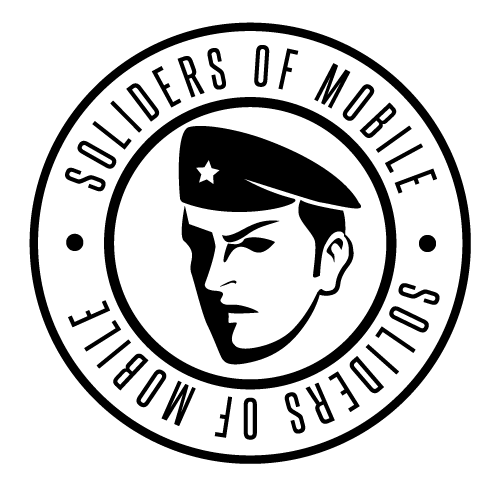Stay ready, stay mobilized !
21 October 2017 Łódź, Poland
# About the Event
Mobilization is a conference dedicated to mobile technologies. The main scope is development of mobile solutions aimed at smartphones and tablets, with particular interest in Android, iOS and HTML5.
# Agenda
Registration
 Beginner
Beginner
Hello world!
This is couple of words about Mobilization. For community by community.
No Coffee Break

 Beginner
Beginner
How to combine Swift/Kotlin with C/C++
By Michał Kowalczyk
The appearance of Swift and Kotlin is a great change in mobile world. There is a number of advantages to using them. Still, one thing didn’t change: as embedded programmers, in order to provide better performance, reduce battery utilisation, etc. we sometimes need to operate on lower level. During the speech, I will provide you with ready-to-use tools that will let you utilise a huge codebase of C and C++ in your project and discuss differences between them.
Coffee Break

 Intermediate
Intermediate
MVC vs MVP vs MVVM vs MVI
By Marcin Moskała
Choose between this pattern is constant subject for discussions and fights. In the same time anyone perceives them differently. Is there any way out of this ideological problems? Let's talk about MVC, MVP and MVVM pragmatically. Let's answer "Why?" and "What are the consequences?".
Coffee Break

 Advanced
Advanced
Functional approach to Android architecture using Kotlin
By Jorge Castillo
Modern languages with functional colors are mainstream lately. Kotlin is arising as one of the most powerful ones, and developers around the world are using it for personal and professional projects. It's time for Android devs to look forward and benefit from this fact, and start designing more advanced architectures based on the features provided by the language. On this talk, I will showcase a Kotlin approach (plus a sample project) to learn how to move all our side effects in the edges of our system, and implement a functional oriented architecture for our Android apps based on purity. Testing will also take part on the talk. I will also showcase a functional programing lib we are working on in the spanish community, called kategory: https://github.com/kategory/kategory If you feel OOP is just not enough and want to make a huge step forward, come to this talk. You will not regret!
Lunch Break

 Intermediate
Intermediate
Android Architecture Components Considered Harmful
By Vasiliy Zukanov
Applications architecture is a broad and important topic in software development, which has been neglected by official guidelines for Android for a very long time. In spite of that, the interest in architecture among the members of Android community has been growing steadily over the years. Official guidelines and tools slowly caught up with the community interests, which culminated in a recent announcement of a set of libraries called Android Architecture Components by Google developers. While the motivation behind Android Architecture Components is clear, the relation between these libraries and application architecture is not so evident. Furthermore, the way these components address the issues that Android developers experienced over the years hides a new set of potential issues and gotchas under the hood. In this session we will attempt to understand what software architecture is and what it isn't, and discuss several potential pitfalls associated with Android Architecture Components.
Coffee Break
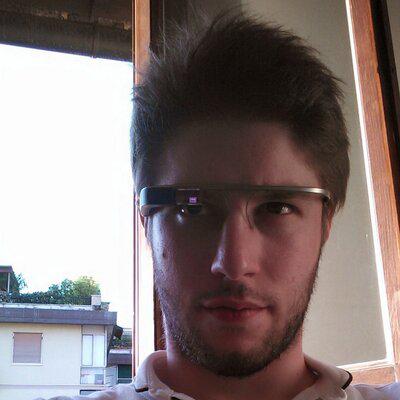
 Intermediate
Intermediate
kotlin.tools() of the trade
By Lorenzo Quiroli
Kotlin is fairly known in the Android community nowadays, and it's really easy to make the switch from Java. Getting the most out of it though it's the difficult part. In this talk we will explore together the most amazing features it has to offer, from the simplest extension functions to the functional style tricks, the coroutines and a bunch of yet-to-discover amazing things!
Coffee Break

 Advanced
Advanced
RxSwift: Deep Cuts
By Krzysztof Siejkowski
In the last few years reactive programming ideas have taken the iOS community by storm. Now that the dust has settled, we're more and more often coming across the most confusing, obscure and unreadable code we've possibly ever seen. The libraries like RxSwift bring the great power, but how to bear the burden of the great responsibility? I'll try to answer this question in my talk, drawing on experience of everyday use of RxSwift in a non-trivial app. Deep diving into implementation details and overview of battle-tested patterns will guide us along the way.
Coffee Break

 Intermediate
Intermediate
Building iOS Apps at Scale
By Yusei Nishiyama
Working with a large code base in a large distributed team involves a lot of challenges. You need to deal with complex workflows, slow build times, communications across different timezones, etc. In this talk, Yusei will share how development teams can tackle these issues and speed up daily development. This talk will also cover the following topics: - Workflow automation with Fastlane - Code review with Danger and SwiftLint - Collecting and visualizing code metrics with InfluxDB and Grafana - Build time reduction - Code modularization
Coffee Break

 Intermediate
Intermediate
The Kodein KOtlin DEpendency INjection library
By Salomon Brys
Kodein is a library that allows for ideomatic & semantic dependency injection in Kotlin. In this talk, I will first present Kodein, its goals and achievements. I will then propose a live coding showing how to use Kodein in an Android application.
No Coffee Break
 Advanced
Advanced
Finally meeting
Time to give thanks to all the sponsors and the organizer's team.
AfterParty in All Star Klubokawiarnia
Registration
No Coffee Break

 Intermediate
Intermediate
Machine learning for a healthy society
By Zachary Markin
Addiction to drugs and alcohol destroys lives, families, and communities. This talk explores how we are structuring content generated through a mobile-first social network and applying machine learning techniques to predict relapse to substance abuse based on natural language processing. We will explore our methods, findings, and toolset for providing clinical relevance of self-administered therapies.
Coffee Break

 Intermediate
Intermediate
Unmaintainable code - iOS developer perspective
By Tomasz Gebarowski
Is code duplication the root of all evil? Should I always write a generic code? How to make others life harder? A subjective journey through common iOS anti-patterns, not so best practices and code smells from the perspective of an experienced Software Engineer. Based on +10 years of commercial experienced, thousands of code reviews, made with a dose of pragmatism.
Coffee Break

 Intermediate
Intermediate
GraphQL vs REST
By Adam Żaczek
Introduction to GraphQL as the innovational way of thinking about data. Broad GraphQL vs REST comparison led by real life examples of working with each of the two concepts. Based on my article shared by GraphQL's Twitter
Lunch Break

 Intermediate
Intermediate
Database handling with Room
By Sergi Martinez
Room is the new library from Google to speed up the database work and remove a lot of boilerplate. We will see and introduction to this library and how to structure your application to get the most of it.
Coffee Break

 Intermediate
Intermediate
Advanced Retrofit
By Maciej Puchalski
Retrofit library makes developers life easier. It serves for something very important these times - to connect to the Internet and get data from it. Everything in Retrofit is simplified to the required minimum of code to be written. In this talk there will be described advanced concepts, along with a little introduction to the library.
Coffee Break
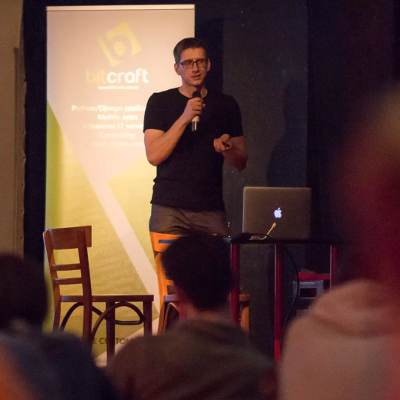
 Intermediate
Intermediate
Optimizing Android App performance with AT&T Video Optimizer
By Bartosz Kraszewski
App performance matters. To achieve greatness we need to track and measure what we can't see with naked eye. I my talk, I'll introduce you to AT&T performance optimizer. Are you sure your Android app will pass strict security and performance tests?
Coffee Break

 Beginner
Beginner
Predict impending doom with IoT and ReactNative
By Gabor Wnuk
In short few slides i'll show you how to program an ESP32 microcontroller using JavaScript, create air quality sensor, and how to communicate with it using Bluetooth LE and ReactNative application.
Coffee Break

 Intermediate
Intermediate
Database driven UI with MVVM & Realm
By Nikola Irinchev
In this talk I'll show how to simplify your app's architecture by letting the database drive the UI. We'll explore powerful features of Realm such as change notifications and automatic updates to ensure we never have to manually update the UI again.
No Coffee Break
AfterParty in All Star Klubokawiarnia
Registration
No Coffee Break

 Beginner
Beginner
Augmented Reality in the iOS World. What's in there for us?
By Kamil Czopek
The Goal of this session is to underline the importance of the AR related topics and to provide some introduction into the iOS AR world - from the developer's perspective. Nowadays, Augmented Reality seems to grow way beyond the BIG BUZZWORD and it's going to upscale a few more times during the upcoming years. TONS of opportunities seem to be waiting for a sign to appear suddenly on the horizon. And as "Opportunity dances with those already on the dance floor", the session intends to cover how to jump start into the AR on the iOS platform. Partly, but NOT ONLY, with the use of the goodies provided by Apple.
Coffee Break

 Beginner
Beginner
Android Things 101
By Raul Portales
In this talk Raul will explain the basic concepts of Android Things (Android for IoT), explain how to setup the development environment for it and show how easy is to work with the different peripherals. For this, he'll use the most popular Dev Kit for Android Things: A Raspberry Pi with a Rainbow HAT (which has lots of sensors, input and output devices).
Coffee Break

 Beginner
Beginner
Speech Analysis techniques
By Martin Mitrevski
The evolution of user interfaces in mobile apps continues with the most natural way of expressing the user’s wishes - their voice. Understanding what the users say is not an easy task. In this talk, we will see several speech analysis techniques used to help us in this challenging task, from Apple's brand new Core ML and SiriKit, to Google's api.ai, along with some well known Natural Language Processing algorithms like the TF-IDF.
Lunch Break

 Intermediate
Intermediate
Let's framework everything!
By Jakub Mazur
With tvOS introduced almost two years ago, we now have four platforms that can run your app. Of course, each requires tailored UI approach, but tests and deployment for each platform should be quite straightforward. Let’s talk about building a framework, writing tests for it and onwards preparation to use for all Apple devices.
Coffee Break

 Intermediate
Intermediate
Zero to hero in UI testing
By Veselin Iliev
(or how to build a scalable testing suite). In this talk we'll discuss the problems around UI testing - why is it hard to write such tests, how to get started, how to make them part of your CI system. We'll present a recipe for building a scalable framework that makes writing UI tests a pleasure. Most of the common "gotcha-s" will be solved along the way, as well as giving a few best practices. Once the foundations are laid out, a whole new set of scaling problems arises, so we'll talk about possible solutions for them. Whether you still don't have any UI tests in your project, or you already have a good suite built, this talk will give you some useful tips & ideas.
Coffee Break
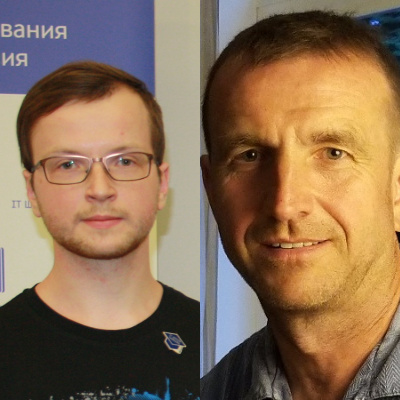
 Intermediate
Intermediate
Optimizing Android apps for desktop experience
The mobile devices of the latest generation are now capable of powering the desktop user experience. Get your Android apps ready for the big screen. Learn what it takes to optimize your apps for enhanced interactions, desktop mode capabilities, and an overall amplified in-app experience. Stay for the quiz and for a Samsung DeX station giveaway at the end of the session!
Coffee Break

 Intermediate
Intermediate
Tensorflow for Mobile Developers
By Enrique Lopez Manas
There is a lot of Hype with ML and AI lately, and TensorFlow is the framework of choice from Google. But as a Mobile Developer you might have asked yourself, how can I benefit from it? In this talk, you will learn your first steps into the fascinating ML world for mobile
Coffee Break
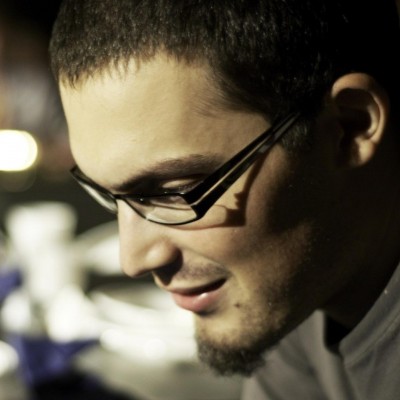
 Advanced
Advanced
Lenses and Prisms in Swift
By Elviro Rocca
The concept of functional Lens has become pretty popular in functional programming circles, and there are already good contributions for applying lenses to other, traditionally imperative/OO contexts. I’d like to offer a more in depth view on why lenses can be useful in Swift, and also talk about an associated concept called Prism. Let’s consider some practical problems and confront an idiomatic/imperative approach to the one based on lenses and prisms.
No Coffee Break
AfterParty in All Star Klubokawiarnia
Registration
No Coffee Break

 Intermediate
Intermediate
Drink Espresso during Android Testing
By Aliaksandr Zhukovich
Mobile apps are growing. They become more complex and require more testing. It means that it is time to integrate automating tests to your project. In this talk we will discuss shortly testing of Android project in general and User Interface testing with Espresso framework in detail.
Coffee Break

 Intermediate
Intermediate
Realm database in real life
By Marcin Zbijowski
I'd like to present my actual case where I used Realm platform, both frontend (iOS) and backend (AWS cloud).
Coffee Break
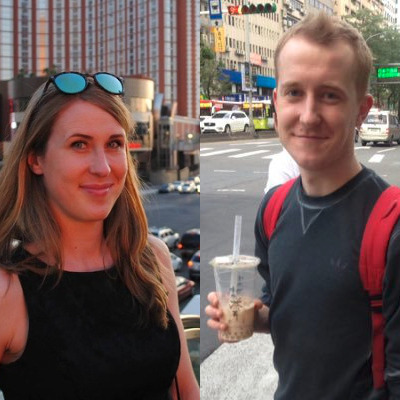
 Intermediate
Intermediate
Ogres and tests are like onions
If you are curious how we test iOS mobile applications in Allegro, this lecture is for you. We think of app testing right after opening Xcode, creating user interface and writing final implementation. On different development stages, we test different subjects with different tools. Feel invited to learn our story about subsequent layers of testing, starting from unit, through snapshot and functional testing. True story based on developer’s and tester’s experience.
Lunch Break
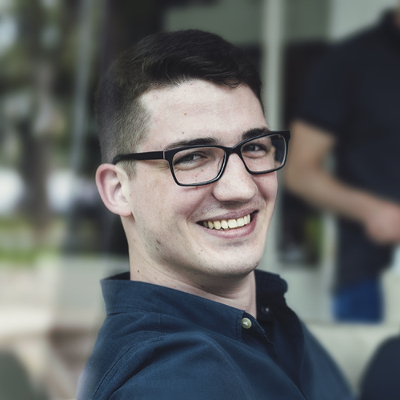
 Beginner
Beginner
Introduction to React Native
By Eliasz Sawicki
React Native has been a hot topic for some time now. Many people claim that it is revolution in mobile development, others treat it as another multi platform solution which will never replace the "real" native development. So... What is it then? In this talk I'll share my experience as iOS developer who got into React Native development and has many different feeling regarding the topic.
Coffee Break

 Beginner
Beginner
Using Android Things to detect & exterminate Reptilians
By Gautier Mechling
Whether you believe it or not, the Reptilians are everywhere, and we have never been ready to face them so far. We WERE NOT ready... But this will finally change, now that Android Things has been released. Trust me, they didn't want to see that happen. Together, we will discover Android Things and see how we can create a moving machine capable of detecting Reptilians (with touch/skin temperature sensors, and machine learning), but also capable of exterminating them (btw, I would appreciate if the staff could lend me a flame-thrower, it would make a great demo). How? Using a Raspberry Pi, an Arduino, and discovering+using some specific Android Things APIs, such as gpio, pwm, i2c, spi, uart, allowing us to interact with physical components. Come see the power of Android Things.
Coffee Break

 Intermediate
Intermediate
Building CI pipeline based on TeamCity & Docker in Android Team
By Paweł Gajda
Nowadays, there are a lot of hosted CI solutions that offer quick integration with our repositories and need just few clicks to finish initial setup. Other services, coming with enhanced functionality, but requiring a server to maintain are often not given a try. First problems occur when we start coping with long compilation time and limited resources, especially during instrumented tests running on the Android Emulator. Here TeamCity comes with a rescue. With simplified setup (using Docker) and few tricks, reducing time for possible management, we do not need to hire a DevOps engineer.
Coffee Break

 Intermediate
Intermediate
Make your app instant
By Yuliya Kaleda
Instant Apps is a bridge between seamless web experience not requiring installation and truly native user experience with material design and navigation. It absorbs the benefits of both worlds. As Google's early access partner, Jet.com got access to Instant Apps API and tools in their early experimental stage. I was leading Instant Apps project for the last 8 months at Jet.com and would love to share the experience. Building Instant Apps required a lot of work on the architecture side, modularization and reducing the app size. In my talk I will touch the following points: - Instant Apps types - Architecture changes - Size and feature constraints - Pain points and lessons learned - Ways to slim down the app and bring it down to 4 MB - Benefits
Coffee Break

 Intermediate
Intermediate
Bluetooth Low Energy on Android: Top Tips for the Tricky Bits
By Stuart Kent
Now that 90% of Android consumer devices and 100% of Android Things devices run software that supports Bluetooth Low Energy (BLE), it’s the perfect time for Android developers to dive into the Internet of Things and start building companion apps or custom smart devices. Unfortunately, Android’s Bluetooth stack has a well-deserved reputation for being difficult to work with. Join me for a journey through battle-tested strategies and code that will provide you with a roadmap for navigating the nasty parts. No prior experience with BLE is required; a gentle introduction is included.
No Coffee Break
AfterParty in All Star Klubokawiarnia
Registration
No Coffee Break

 Intermediate
Intermediate
DevOps in mobile?
By Tomasz Pająk
Developing an app being a consumer product means working under constant pressure to frequently release features that bring value to customers. Several-months-long development with no release to production happens very seldom in the aforementioned context. How to cope with a need for speed of releasing an app eg. once a week? If you look at what happens in a ‘backend world’, DevOps is the new hype giving a promise to deliver value in a stable way very often. However, DevOps is very often associated mistakenly only with Continuous Integration and Continuous Delivery. I will be talking about increasing overall flow of value to customers, shortening feedback loops from customers and building an organization which is optimized for speed and stability. Moreover, what practices considered with DevOps in a ‘backend world’ are valid in a 'mobile world'? On the other hand, what practices need to be re-thought taking into account the mobile context? I will not be able to answer all the questions as I don’t know all the answers. However, the answers I have are based on what Facebook, Netflix, Etsy and - where applicable - Seqr do, don’t do or were doing wrong. The goal of my talk is to help people to understand DevOps comprehensively and how it fits into mobile context. I will refer to certain technologies as examples but will not discuss them in detail.
Coffee Break

 Beginner
Beginner
Awesome native apps with NativeScript and Angular!
By Rowdy Rabouw
Developing native iOS (and Android apps) can be very time consuming and expensive. What if you could build native apps with one code base and web techniques? Well, you can with NativeScript! In this introduction, I’ll explain what NativeScript is and how it compares to other platforms. And in a live demo, I will show you how easy it is to get started and to make use of native capabilities.
Coffee Break

 Intermediate
Intermediate
Breaking Bug
By Saúl Díaz
Breaking Bug is a post-mortem about how we handled in Chicisimo a bug which went largely undetected and of unknown scale. We will explain how it did affect us, and which techniques and tools did we use to: 1. Investigate what was going on. 2. Properly diagnose and narrow it to the affected part in the app. 3. Analyze its impact and affected people. 4. Finally isolate it and fix it. In the end we will give some conclusions about how was the real cost of fixing it, and in which ways the process gave us insight and helped us to understand and improve our quality processes.
Lunch Break

 Intermediate
Intermediate
Making Scriptable iOS Apps
By Daniel Tull
I will discuss how we can provide a Javascript interface to an app's core functionailty, and how this can help during development time, as well as providing advanced users with increased powers.
Coffee Break

 Intermediate
Intermediate
Offline-first
By Miguel Quinones
The best applications function equally well with and without network access. Offline functionality goes beyond a simple cache or database, and it is not a binary choice. Offline first encompasses project requirements, user interface design, security and code architecture. In this talk we'll review the challenges and ways to build applications that take offline as a first class requirement.
Coffee Break

 Beginner
Beginner
I didn’t know the browser could do that!
By Sam Bellen
The times when a browser simply had to parse and show some markup are long gone. These days they are full of interesting api’s exposing various information and behaviour to web developers. This talk will walk you through a few of these api’s (speech, speech recognition, battery, location, ...), some of which you might know, some maybe not. I will show a quick example of what some of these api’s can do, and how to use them.
Coffee Break

 Intermediate
Intermediate
Don’t fear SQL: A better way to store and handle data with SQLBrite && SQLDelight
By Leandro Favarin
For many people, SQL can be intimidating when writing mobile apps. To avoid its complexity, various libraries started to implement techniques such as Object-Relational Mapping. They ease basic operations on complex objects, but come with a set of downsides such as decreased performance and the learning curve of a new library. Square’s libraries SQLBrite and SQLDelight improve data manipulation by embracing all the powerful capabilities of SQLite while removing common frictions like runtime crashes, boilerplate code, and type-unsafe APIs. In this talk I’ll present the reactive mindset behind SQLBrite and the code-generation capabilities of SQLDelight. When combined, these two libraries will help you architect and code safer and faster with queries autocompletion, code reuse, and much more.
Coffee Break

 Intermediate
Intermediate
Don't loose your users because of endless quality issues
By Olivier Destrebecq
Getting someone to download your app is hard enough. Don't scare them away with constant crashes, bad behaviors and errors which make your app unusable. During my presentation, I'll go over techniques, habits and tools to keep your iOS app in tip top shape.
No Coffee Break
AfterParty in All Star Klubokawiarnia
# Speakers

Adam Żaczek

Adam Żaczek
GraphQL vs REST

Aleksander Grzyb

Aleksander Grzyb
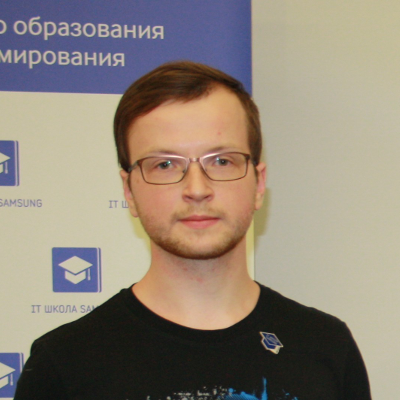
Aleksei Kliuev

Aleksei Kliuev

Aliaksandr Zhukovich

Aliaksandr Zhukovich

Bartosz Kraszewski

Bartosz Kraszewski

Daniel Tull

Daniel Tull

Eliasz Sawicki

Eliasz Sawicki

Elviro Rocca

Elviro Rocca

Enrique Lopez Manas

Enrique Lopez Manas

Ewa Ludwiczak

Ewa Ludwiczak

Gabor Wnuk

Gabor Wnuk

Jakub Mazur

Jakub Mazur

Jorge Castillo

Jorge Castillo

Kamil Czopek

Kamil Czopek

Krzysztof Siejkowski

Krzysztof Siejkowski
RxSwift: Deep Cuts

Leandro Favarin

Leandro Favarin

Lorenzo Quiroli

Lorenzo Quiroli

Maciej Puchalski

Maciej Puchalski
Advanced Retrofit

Marcin Moskała

Marcin Moskała

Marcin Zbijowski

Marcin Zbijowski

Martin Mitrevski

Martin Mitrevski

Michał Kowalczyk

Michał Kowalczyk

Miguel Quinones

Miguel Quinones
Offline-first

Nikola Irinchev

Nikola Irinchev

Olivier Destrebecq

Olivier Destrebecq

Paweł Gajda

Paweł Gajda

Raul Portales

Raul Portales
Android Things 101

Rowdy Rabouw

Rowdy Rabouw

Salomon Brys

Salomon Brys

Sam Bellen

Sam Bellen

Saúl Díaz

Saúl Díaz
Breaking Bug

Sergi Martinez

Sergi Martinez

Stuart Kent

Stuart Kent

Tomasz Gebarowski

Tomasz Gebarowski

Tomasz Pająk

Tomasz Pająk
DevOps in mobile?

Vasiliy Zukanov

Vasiliy Zukanov

Veselin Iliev

Veselin Iliev

Victor Okunev

Victor Okunev

Yuliya Kaleda

Yuliya Kaleda

Yusei Nishiyama

Yusei Nishiyama

Zachary Markin

Zachary Markin
# Venue
(Nowa) Hala Expo
al. Politechniki 4
93-590 Łódź, Polska

